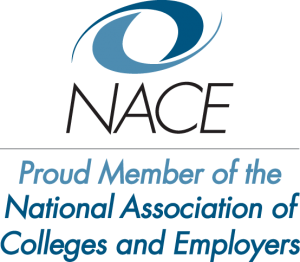When you think about career success, what comes to mind? A paycheck, promotion, hitting your performance goals, soaring past them, having a sense of job security? Maybe it’s the feeling that you’ve finally found a job you love or are receiving recognition for your hard work.
The point is, the notion of career success varies slightly from person to person.
Defining Career Success
Career success typically refers to “positive psychological or work-related outcomes or achievements one accumulates as a result of work experiences.”[1]
Within psychological research, career success can be classified two ways:
- Objective career success refers to salary, promotional history, and generally things that are observed.
- Subjective career success refers to individuals’ feelings of accomplishment or satisfaction with their careers.
How FIT Impacts Career Success
Person-environment (PE) fit and career success have garnered significant attention within workplace research.
PE fit refers to the compatibility, or match, between an individual and the characteristics of their work environment. This can be broken down further into person-organization (PO); person-job (PJ); person-group (PG); person-supervisor (PS); and more.
Different types of fit influence our job and career decisions. These decisions have considerable influence on our job performance, satisfaction, commitment, and other career-related outcomes, ultimately contributing to both our subjective and career success.
Job Fit and Career Success
Person-job (PJ) fit is defined as the relationship between a person’s characteristics and those of the job or tasks performed at work[2] and can be further classified into two types: Demands-Abilities and Needs-Supplies.
- Demands – Abilities fit represents the fit between an employee’s knowledge, skills, and abilities to those that are required for the job.
- Needs – Supplies (also called Supplies – Values) fit occurs when an employee’s needs, desires, or preferences are met by the jobs they perform. This might include an individual’s goals, psychological needs, interests, and values.
The balance or congruence between and individual’s skills or needs with the demands or supplies of the job lead to certain levels of career satisfaction and performance. When demands of a job are well matched to the skills of an individual (demands-abilities fit), or when an individual’s interests are well matched to the content of the role (needs-supplies fit), employees experience positive outcomes.
For example, research shows that strong PJ fit is correlated to[2]:
- Job satisfaction
- Organizational commitment
- Organizational identification
- Engagement
- Overall performance
Alternatively, poor PJ fit has been shown to be significantly related to dissatisfaction, boredom, anxiety, depression, irritation, and trouble sleeping[3].
Therefore, person-job fit is a critical component of career success and satisfaction with one’s career.
Job Choice for Career Success
Knowing the relationship between job fit and positive career outcomes, how can we select jobs that fit us to ensure career success?
- Research shows that interest congruence leads to college and career success, so start by learning more about yourself. What are your interests? Values? What do you seek from your work in order to be happy? There are career assessments that can help you identify answer these questions.
- Be sure to spend time learning about the vast occupational opportunities that exist in the world of work. There are many online resources that supply access to up-to-date occupational information. You may learn of a career you’ve never considered before.
- Once you’ve identified a career path that is well-aligned with your personal characteristics, then consider how to develop the relevant knowledge, skills, and abilities you will need to be successful in that career. This might mean earning a relevant degree, getting certified, or earning digital badges in a particular subject area.
This approach targets both Needs-Supplies and Demands-Abilities job fit by identifying a career path that aligns with your preferences and your abilities.
By starting with wise career decisions, you can set yourself up for a lifetime of career success.
______________________________________________________________________________________
[1] Seibert, S. E., Crant, J. M., & Kraimer, M. L. (1999). Proactive personality and career success. Journal of Applied Psychology, 84(3), 416.
[2] Kristof‐Brown, A. L., Zimmerman, R. D., & Johnson, E. C. (2005). Consequences of individuals’ fit at work: A meta‐analysis of person–job, person–organization, person–group, and person–supervisor fit. Personnel Psychology, 58(2), 281-342.
[3] Warr, P., & Inceoglu, I. (2012). Job engagement, job satisfaction, and contrasting associations with person–job fit. Journal of Occupational Health Psychology, 17(2), 129.







